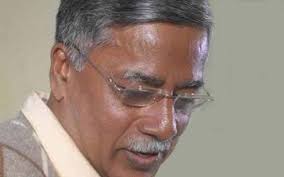Jaipur, Dec 31: Alleging that he is being "victimised" because of his Scheduled Caste origins, a senior IAS officer here has changed his religion and applied today for Voluntary Retirement from Service (VRS) in protest against the extension of tenure awarded to Chief Secretary CS Rajan.
 "I am Chairman of RSRTC and Additional Chief Secretary for over the last four years and competent for the post of Chief Secretary but the present CS is given 3 months extension by the state government. Hence I cannot work under a junior," Chairman of Rajasthan State Road Transport Corporation Umrao Salodiya said here.
"I am Chairman of RSRTC and Additional Chief Secretary for over the last four years and competent for the post of Chief Secretary but the present CS is given 3 months extension by the state government. Hence I cannot work under a junior," Chairman of Rajasthan State Road Transport Corporation Umrao Salodiya said here.
"I was under the impression that being a member of Scheduled Caste (SC) and senior IAS officer cadre, I would be given a chance to work as Chief Secretary. I feel victimised.
Hence I submitted three months notice of VRS to the state government," the Additional Chief Secretary rank IAS officer said.
"Now the state government has to take a decision on my VRS cum protest letter within three months. However my retirement is due June, 2016," he said.
Giving another example of a case in which he filed an FIR with GandhiNagar police station against a judicial officer in 2014, he said that no action was initiated by the police.
"Now I will be called as Umrao Khan," the officer said.
"Being a Hindu and SC member, I was always victimised. Hence I converted my religion to Muslim by reading "Kalma" in a masjid but members of my family have not changed religion," he said.
When asked whether he has any plans for re-marriage with any Muslim woman/girl, he said, "No way. I have my family. I feel happy now. I am satisfied that I protested against victimisation".
Incumbent Chief Secretary C S Rajan, who was to retire today, has been given three months extension by the Raje government.
When contacted, the Department of Personnel Official said he had also heard about the matter on a TV news channel, but so far no letter landed there.





Comments
How sad , me too is thinking from long time
Welcome to the umbrella of Islamic brother hood sir.
Add new comment